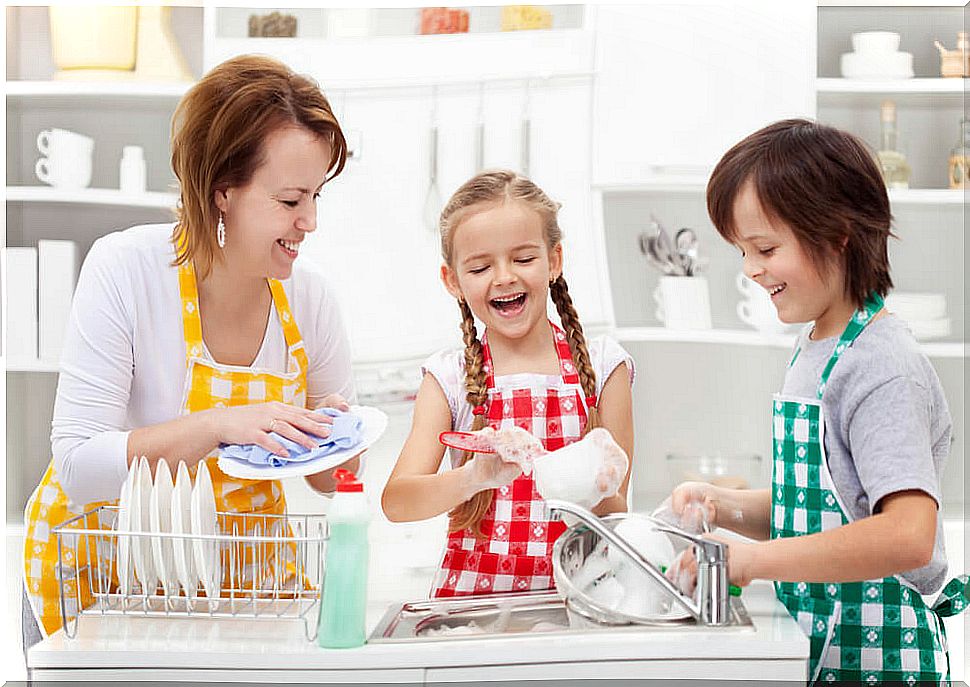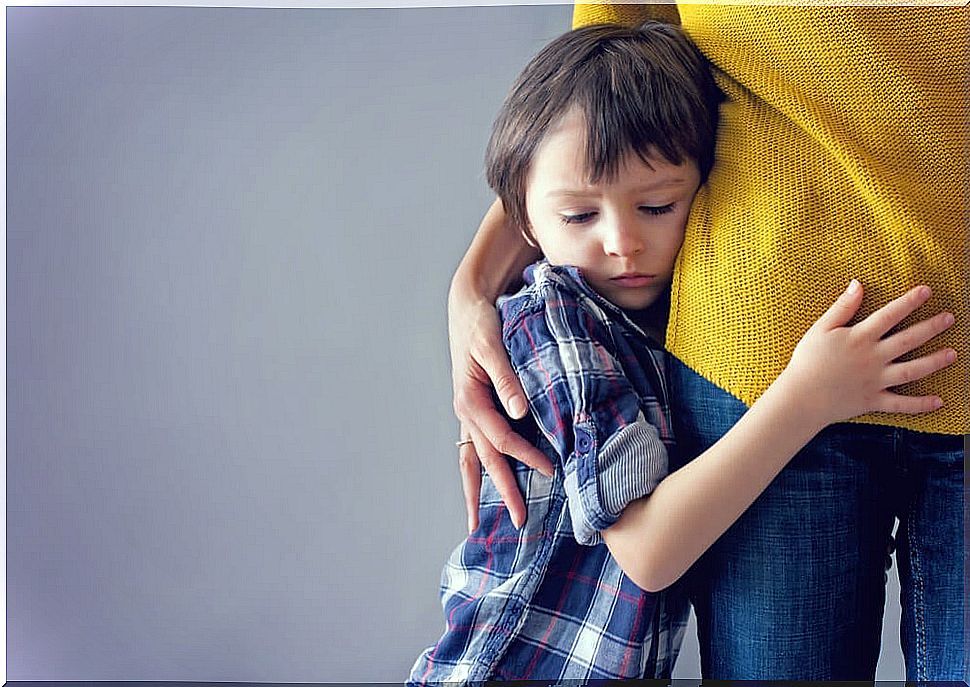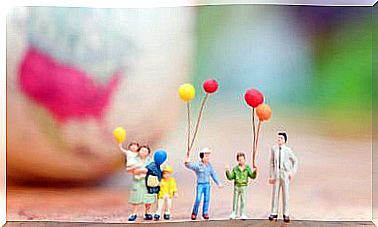12 Ways To Promote Children’s Self-esteem

We are so obsessed with creating the adult wellness bubble that we have forgotten the importance of sowing children’s self-esteem. It is very important that our little ones grow up in a world of balanced adults, as it will be the best that we can transmit to them. However, if we stop to think about this, it won’t take us long to realize that we make our shortcomings visible.
Thus it is that children, like animals, perceive our fears and insecurities and make them their own with great ease. Given this scenario, the truth is that we must make an effort so that this happens to a lesser extent. But how can we do it?
In the first place, taking into account that we are the best example to follow for children, so we must promote our self-care. Secondly, with our way of acting and treating them, as well as the values that we instill in them, that is, in how we educate them.

we want children who love and trust themselves and their potential.
1 – It is very important to take them into account and dedicate our time to them exclusively
We must consider what the child asks of us and demands of us. In addition, if we are walking with them, we should not go looking at our mobile phone, because the child will give us looks and moments that we will miss. Therefore, to promote children’s self-esteem we have to take children into account, in addition to dedicating part of our time to them.
2 – Correct your mistakes but from love
Without screaming and with patience, the child is a sponge that will absorb the good and the bad. Make him understand that you learn together and that the exchange is mutual.
3-Promote their autonomy by giving them responsibilities
Let them make small decisions regarding their relationships or daily habits. For example, they can cook with you or prepare their lunch, help you dry and clear the dishes, set the table, choose the clothes they want to wear …

4-Do not compare them
Another key to building children’s self-esteem is not to compare them, not with their siblings or with their friends. Do not compare a child to anyone, and do not compare it to an adult. No one is better or worse than anyone, we are all different.
5 – Do not label him as “clumsy”, “bad”, “stupid”
This does not help at all to grow with a healthy self-esteem. When the child does something wrong there are many ways to tell him: it is not okay for you to hit your siblings, you don’t have to break the toys or we have to work the math well.
6-Do not do it as “smart” “good” or “intelligent”
The child will not understand why you refer to him in that way. In his case, you can tell him: how well you have done the tasks, how well you have collected or I love watching you paint. That is, it judges their behaviors but not the child.
7-Establish clear limits and be consistent with them
That is, if you don’t pick up your toys, we won’t go to the park ; The child will want to negotiate this but they are not worth half measures, if you have put a reasonable condition on him you have to enforce it, otherwise he will not take it seriously. Firmness.

8-Value the effort, not the results
Do not focus on whether he got an A or a pass, the important thing is that the child has been constant and has made an effort, reinforce this. To promote children’s self-esteem, it is very important to value their efforts.
9-Do not exaggerate your compliments and be concrete
That is, tell him what he has done well and why you liked it so that the child knows what you like. You have collected your toy cars very well and the stuffed animals is substantially different than You are very neat.
It is important that you discuss their achievements and efforts with other people, as it will make them feel useful and important.
10-Validate your emotions
If the child cries, it is likely that he has hurt himself, give it the importance it has. Avoid saying: Nothing is wrong! Yes it happens, something makes you feel bad and it is important that we give it the relevant relevance.
11-Do not overprotect him, you will promote insecurity and dependence

Do not stand guard and watch them at all times, because you will generate bubble children. Children do not break down and need a dynamic that creates opportunities for them to develop constantly, not to stagnate.
12-Reserve moments for each of the children around you
Try to find an individual space for each one, because the fact of being important and protagonists for a few minutes or a few hours is very reinforcing for them. Doing so shows them that it is key for you to dedicate yourself to each other from time to time, caring how they feel and seeking to generate novel exchanges.









